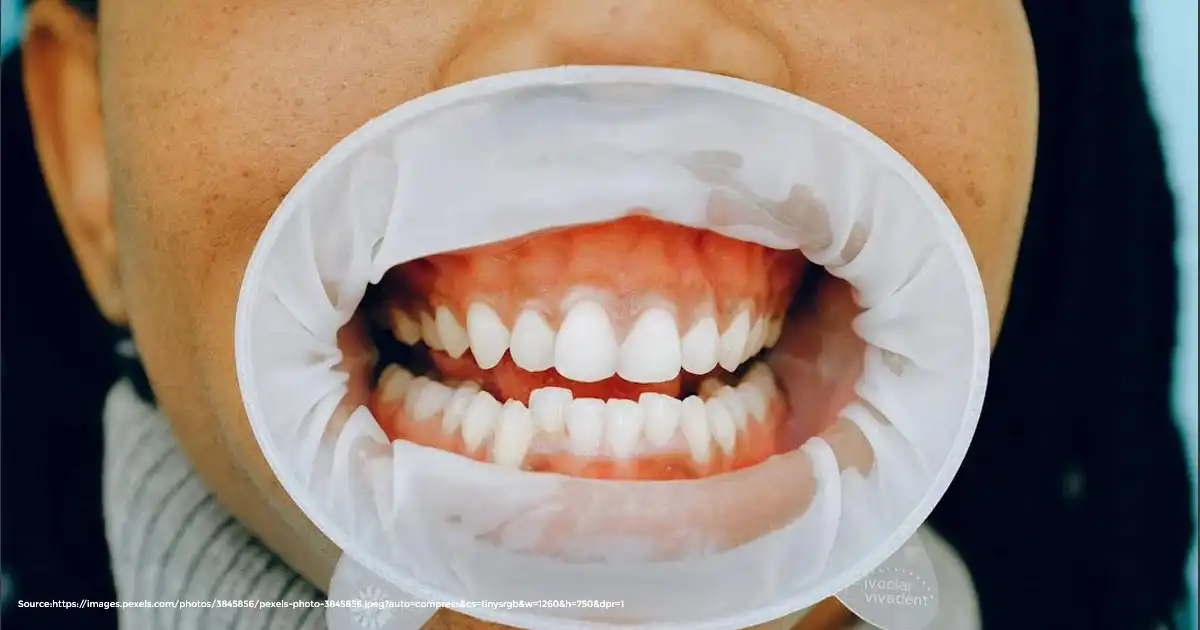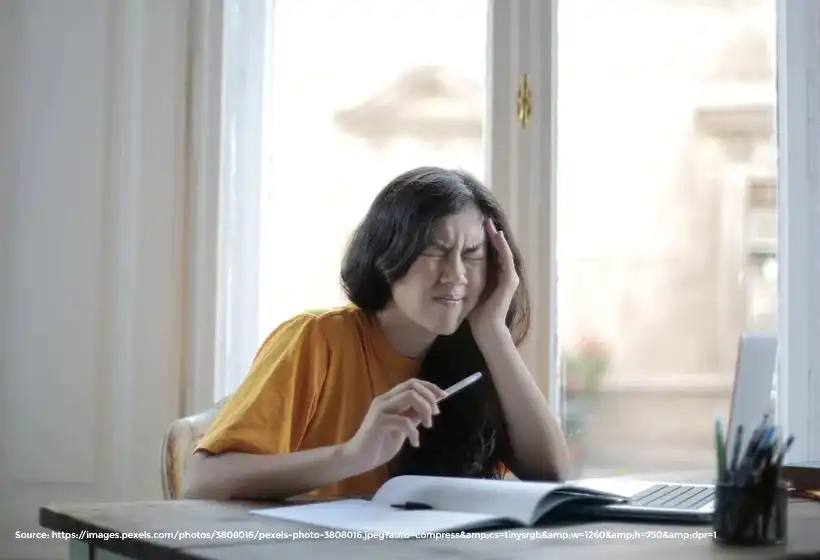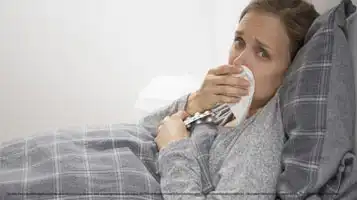What Is Sleep Bruxism? This Is What Happens

Key Pointers I’ll Be Discussing Today:
- Sleep bruxism involves involuntary clenching and grinding of the teeth during sleep.
- It’s common occurrence according to age; does it affect children too?
- Causes: Anger, Fear, Stress or the Unconscious mind. Learn the involuntary reactions that set the stage for bruxism
- Symptoms, Diagnosis and Treatment of this rare phenomenon
- My Journey on Sleep Bruxism (Personal Story)
- Consequences of Bruxism
- Relaxation Tips to Stop Grinding Teeth Naturally
- FAQs on Sleep Bruxism: Can I Outgrow It? Maybe; maybe not. Read them all.
“Hello there, night owl! Ever wake up with a sore jaw that feels like it bench-pressed a boulder? That’s ‘sleep bruxism’ for you – the fancy term for teeth-grinding.”
Now, I want you to relate to this scenario. Imagine this scene: You’re peacefully drifting off to sleep, your mind counting sheep grazing in a pasture. Suddenly, you have a teeth grinding headache, and your jaw clenches like nobody’s business. And it’s completely involuntary. That’s an episode of sleep bruxism.
I know, I know…
You have a number of burning questions in your mind by now, don’t you? I got you covered. Down below I’ve discussed every detail there is on Bruxism, so you don’t have to go anywhere else.
Go, grab your coffee, and let’s get started already!
What Is Sleep Bruxism?
It’s a sleep phenomenon, that commonly goes by the name of ‘teeth grinding’ during sleep. It involves the movement of your masticatory muscles that are involved while you chew. Unlike bruxism during the day, which occurs when you’re awake, sleep bruxism happens unconsciously (involuntary) during sleep. These 2 forms of bruxism are considered distinct conditions, even though they share similar physical actions.
Understanding Bruxism and Its Impact
How is bruxism characterized? I’ve experienced it before so let me explain. You get a feeling you’re your teeth are clenching, grinding, or gnashing against each other, either while you’re awake (daytime bruxism) or when you’re asleep (sleep bruxism). That’s there in simple words.
While occasional teeth grinding is usually harmless, regular bruxism can lead to significant dental issues and other health problems, including bruxism pain and teeth grinding headaches.
But what’s the scientific explanation behind sleep bruxism? I’ll get to that.
Science Explained: Sleep Bruxism
Modern research has led us to the understanding that sleep bruxism is a ‘multifactorial condition’ with complex underlying mechanisms. However despite extensive research, the exact etiology remains unknown still. But good news is – several central (pathophysiological and psychosocial) factors have been identified that leads to sleep bruxism.
Irregular Sleep Patterns and Microarousals
One of the key factors associated with sleep bruxism is irregular sleep patterns, particularly the occurrence of microarousals. These are brief awakenings or shifts to lighter sleep stages that can trigger your episodes of teeth grinding.
Most of your teeth grinding episodes are preceded by an increase in brain and cardiovascular activity. What does this indicate? That there’s a possible link between sleep cycle, sleep disruptions and bruxism.
Sleep Cycles and Bruxism
You may already know this. Your sleep is divided into sleep cycles of non-Rapid Eye Movement (non-REM) and Rapid Eye Movement (REM) sleep. Non-REM sleep can be further classified into light sleep (stages 1 and 2) and deep sleep (stages 3 and 4).
Sleep bruxism episodes primarily occur during the light stages of non-REM sleep. This is typically around the stages 1 and 2, and less frequently during REM sleep.
What Exactly Happens?
During REM sleep, your body’s muscles are kind of relaxed to the point of paralysis. But your brain activity remains high, similar to when you’re awake.
- REM sleep behavior disorder: In some cases, bruxism during REM sleep may be related to REM sleep behavior disorder, a rare condition where individuals act out their dreams with movements such as talking, shouting, or even punching.
- Rhythmic Masticatory Muscle Activity (RMMA): Another significant factor in sleep bruxism is RMMA activity. This involves slow, chewing-like movements without tooth grinding.
RMMA is observed in up to 60% of normal individuals and 80% of those with sleep bruxism (when it is frequent and there’s teeth grinding). These jaw muscle activities may be linked to Central Pattern Generators in the brain that control rhythmic movements during both wakefulness and sleep.
Types of Bruxism
There are two main types of bruxism as I’ve discussed below.
- Bruxism During Day (Diurnal Bruxism): Teeth clenching and grinding during the day.
- Sleep Bruxism (Nocturnal Bruxism): Teeth grinding that occurs during sleep in recurrent episodes.
Doctors may also categorize bruxism as:
- Primary Bruxism: Not related to any other medical condition.
- Secondary Bruxism: Linked to another medical issue, such as a neurological problem or due to certain medications.
Epidemiology: How Common is Bruxism?
· Who’s on the Guest List?
Hold up! Let me check who’s qualified to have these teeth-grinding episodes!
The prevalence of sleep bruxism varies significantly across different age groups. It is more prevalent in children, adolescents, and young adults than in middle-aged and older adults. Then there’re individuals who are unaware that they grind their teeth at night, so it’s quite difficult to state a precise statistics of population.
Bruxism in Adults
Facts reveal that sleep bruxism declines with age. About 8% of middle-aged adults experience sleep bruxism, while only around 3% of older adults remain affected. The decrease in prevalence among older adults suggests that sleep bruxism may be more related to lifestyle factors and stress, which tend to be more prominent in younger age groups.
Bruxism in Adolescents
Among adolescents, the prevalence of sleep bruxism is estimated to be around 15%. This indicates that a significant number of teenagers experience nighttime teeth grinding, though the condition tends to decrease in frequency as they transition into adulthood.
How Common Is Bruxism In Children?
How common is bruxism in children is particularly difficult to determine. This is because of studies reporting a wide range from approximately 6% to nearly 50%.
This variation is due to the differing methodologies and population samples in various studies. Teeth grinding can begin as soon as children’s teeth emerge, affecting infants and toddlers. Additionally, certain sleep disorders, such as sleep talking, sleepwalking, and bedwetting, are believed to increase the risk of sleep bruxism in children.
Why Do I Grind My Teeth At Night? Sleep Bruxism Causes
I’m detailing on the causes now.
- Multiple Influences
The causes of sleep bruxism, or nighttime teeth grinding, are multifaceted, making it challenging to pinpoint a single reason. However, several risk factors are associated with an increased likelihood of developing this condition.
- Irregular Sleep Patterns
Irregular sleep patterns and microarousals, brief awakenings during sleep, are closely connected to episodes of teeth grinding. Increased brain and cardiovascular activity often precedes teeth grinding, which helps explain the association between sleep bruxism and obstructive sleep apnea (OSA).
OSA causes temporary interruptions in breathing, leading to sleep disruptions that can trigger bruxism.
- High Stress Levels
You shouldn’t pass this over. Stress is one of the most significant risk factors for sleep bruxism. Clenching or grinding teeth in response to negative situations is a common reaction that can extend into sleep. High levels of anxiety are also linked to teeth grinding, as stress and anxiety can manifest physically during sleep.
- Lifestyle Factors
Various lifestyle factors are linked to sleep bruxism. Some of these may be,
- Cigarette Smoking: Nicotine can stimulate muscles and the nervous system, potentially increasing the risk of teeth grinding.
- Depression and Anxiety: Mental health conditions like depression and anxiety are associated with bruxism due to their impact on stress levels and sleep quality.
- Caffeine Intake: High caffeine consumption, equivalent to more than six cups of coffee per day, can increase muscle activity and exacerbate teeth grinding.
- Alcohol Consumption: Alcohol can disrupt sleep patterns and lead to more frequent microarousals, which may trigger bruxism.
- Snoring: Snoring, often linked to sleep apnea, can contribute to disrupted sleep and increase the likelihood of teeth grinding.
- Medications
Certain medications have been associated with an increased risk of sleep bruxism. These include selective serotonin reuptake inhibitors (SSRIs), amphetamines, and antipsychotics. If you suspect your medication might be contributing to bruxism, it’s essential to discuss this with your doctor to evaluate dosage and potential side effects.
- Genetics
Genetics play a notable role in sleep bruxism. Research indicates that sleep bruxism can run in families, with approximately half of individuals with the condition having a close family member who also experiences it. This genetic component suggests a hereditary predisposition to teeth grinding.
How Do You Determine the Cause?
Good question. To diagnose bruxism, your dentist will inquire about you or your loved one’s dental health, medications, daily routines, and sleep habits.
A thorough dental examination may reveal the following.
- Tenderness in Jaw Muscles: This indicates overuse of the masticatory muscles due to grinding.
- Dental Abnormalities: Broken or missing teeth, as well as other damage, can suggest bruxism.
- Underlying Bone and Cheek Damage: X-rays can help detect damage that might not be visible during a routine exam.
Other disorders, such as Temporo Mandibular Joint (TMJ) disorders or other dental problems, can cause similar symptoms and need to be ruled out during the diagnostic process.
What Are The Consequences of Bruxism?
The long-term effects of sleep bruxism can lead to significant damage to the teeth, including pain, erosion, and mobility. Dental treatments like crowns, fillings, and implants may also suffer damage.
Additionally, teeth grinding can heighten the risk of Temporo Mandibular Joint (TMJ) issues, causing problems like difficulty chewing, chronic jaw pain, clicking or popping noises in the jaw, jaw locking, and other complications.
However, not everyone with bruxism experiences severe consequences; the severity of symptoms and long-term impacts hinge on factors like the intensity of grinding, teeth alignment, dietary habits, and coexisting conditions such as Gastro Esophageal Reflux Disease (GERD).
Sleep Bruxism Symptoms

From my prior experience I’ve learnt that the involuntary clenching and grinding of teeth during sleep is often unnoticed by the person experiencing it. Typically, you’ll be the first one to notice it if your loved one is grinding their teeth at night.
To make things simple, I’ve researched on several symptoms and effects of sleep bruxism that can help you identify the condition. They are listed below.
Teeth Grinding Effects
Bruxism can cause significant damage to the teeth. Look for these effects such as,
- Flattened, Chipped, or Loose Teeth: The repeated grinding can wear down teeth, making them appear flattened or even causing chips and loosening.
- Worn Tooth Enamel: Constant grinding erodes the enamel, increasing the risk of cavities and tooth sensitivity.
- Teeth Grinding Tooth Pain: The pressure exerted during grinding can lead to persistent tooth pain or sensitivity.
Bruxism Pain
The physical strain of clenching and grinding can cause a person various types of pain. Look for symptoms such as,
- Tight Jaw Muscles: Bruxism often leads to tightness in the jaw muscles, making it difficult to open or close the mouth completely.
- Bruxism Face Pain: The tension can extend to facial muscles, causing widespread discomfort.
- Jaw Pain: Frequent grinding causes significant strain on the jaw, leading to pain that can be severe at times.
- Bruxism Headache: Many people with bruxism wake up with dull headaches, particularly in the temples, resembling tension headaches.
- Neck Pain: The strain from bruxism can radiate to the neck, causing additional discomfort.
- Pain That Feels Like an Earache: Although the ears are not directly involved, the proximity to the jaw can make it feel like an earache.
Bruxism and Tongue
Although less common, some individuals may experience this symptom.
- Tongue Damage: The repetitive grinding motions can occasionally cause the tongue to be bitten or bruised.
Additional Symptoms
Beyond pain and tooth damage, other symptoms can also indicate sleep bruxism. I’ve listen them for your reference.
- Chewing the Inside of Your Cheek: Some individuals may unintentionally bite the inside of their cheeks due to misaligned jaw movements.
- Pain When You Eat: The excessive pressure from grinding can make chewing and eating painful.
- Clicking or Popping in the Jaw: These sounds are signs of problems with the Temporo Mandibular Joint (TMJ), which can be exacerbated by bruxism.
Timing of Symptoms
Most sleep bruxism episodes occur early in the sleep cycle, during stages 1 and stage 2 of non-REM sleep. However, the pain and discomfort from bruxism are often only noticed after waking up. The tightening of the jaw muscles during bruxism episodes leads to morning headaches and unexplained tooth damage, which can serve as key indicators of nighttime clenching and grinding.
How Can We Diagnose Sleep Bruxism?
Sleep bruxism requires a careful diagnostic approach by a dentist or your doctor. Here’s a breakdown of the entire diagnostic process:
Polysomnography: The Gold Standard
The most definitive way to diagnose sleep bruxism is through an overnight study at a sleep clinic, known as polysomnography. This comprehensive test records various body functions during sleep, such as brain activity, eye movements, heart rate, and muscle activity, including episodes of teeth grinding. Although polysomnography is highly accurate, it is also time-consuming and expensive, and may not be necessary for all patients. However, it is particularly useful for individuals with multiple sleep complaints, as it can also identify other sleep disorders like obstructive sleep apnea (OSA).
Home Observation Tests
Less definitive than polysomnography, home observation tests can monitor for signs of teeth grinding. These tests might include wearable devices or apps that track jaw movements or sounds associated with grinding. While these can provide useful information, they are generally considered supplementary and not as reliable as clinical testing.
Dental Exams and Evaluations
During routine dental exams, your dentist will check for signs of bruxism. This may include:
- Tenderness in Jaw Muscles: Your dentist will palpate the jaw muscles to check for any tenderness or discomfort.
- Obvious Dental Abnormalities: Signs such as flattened, chipped, or loose teeth can indicate grinding.
- Worn Tooth Enamel: Excessive wear on the enamel is a common sign of bruxism.
- Other Damage: Your dentist will look for damage to the underlying bone and the inside of your cheeks, often using X-rays for a detailed view.
Determining the Cause
To pinpoint the underlying cause of bruxism, your dentist will ask questions about:
Q1: General Dental Health: A thorough review of your dental history can provide clues.
Q2: Medications: Certain medications can increase the risk of bruxism.
Q3: Daily Routines and Sleep Habits: Understanding your lifestyle and sleep patterns can help identify potential triggers.
Referrals to Specialists
If bruxism seems related to broader sleep issues, your doctor may refer you to a sleep medicine specialist. This specialist can conduct further tests, such as a detailed sleep study, to assess for teeth grinding episodes and check for sleep apnea or other disorders.
For cases where anxiety or psychological factors are suspected to contribute to bruxism, a referral to a licensed therapist or counselor may be recommended. Therapy can help address the underlying stress or anxiety that might be causing or exacerbating the teeth grinding.
If initial signs of bruxism are detected, your dentist will likely monitor these changes over subsequent visits to see if the condition is progressive and to determine if treatment is needed.
Let’s focus on the treatment procedures now.
Bruxism Treatment
While many cases don’t require treatment, severe bruxism may necessitate various approaches to prevent teeth grinding damage and alleviate associated discomfort.
I’ve provided an overview of the available treatments for sleep bruxism.
Dental Approaches
- Bruxism Mouth Guards and Splints
Bruxism mouth guards, also known as night guards, are designed to keep teeth separated, preventing damage from grinding and clenching. These devices can be made from hard acrylic or softer materials and fit over the upper or lower teeth. Custom-made splints, tailored to your specific dental structure by a dentist, are often more effective than over-the-counter options.
- Dental Correction
In severe cases where bruxism has led to significant teeth grinding damage, your dentist might need to reshape the chewing surfaces of your teeth or use crowns to repair and protect the damaged teeth. This can help restore normal chewing function and reduce sensitivity.
Stress and Anxiety Management
- Stress Reduction Techniques
Stress is a significant contributor to bruxism. Learning strategies to manage stress, such as meditation, yoga, and deep-breathing exercises, can help reduce teeth grinding episodes. Cognitive Behavioral Therapy (CBT) can also be beneficial for managing stress and anxiety, which may indirectly reduce bruxism.
- Behavioral Changes
Awareness of bruxism is the first step toward behavior modification. Practicing proper mouth and jaw positioning, as advised by your dentist, can help reduce teeth grinding. Biofeedback, a technique that uses monitoring devices to help you control muscle activity in your jaw, may also be helpful.
Medications
Medications can be used to manage bruxism, although their effectiveness varies and they often come with side effects. Options include:
- Muscle Relaxants
These medications may be prescribed for short-term use to help relax the jaw muscles and reduce grinding at night.
- Botox Injections
Botox, or botulinum toxin, can help relax the muscles responsible for teeth grinding. This treatment is typically reserved for severe cases that don’t respond to other therapies.
- Medications for Anxiety or Stress
Short-term use of antidepressants or anti-anxiety medications may be recommended if stress or anxiety is a significant factor in your bruxism.
Treating Associated Disorders
Addressing any underlying conditions contributing to bruxism is crucial.
- Medication Adjustments
If bruxism is a side effect of a current medication, your doctor may adjust the dosage or prescribe an alternative.
- Treatment of Sleep Disorders
Conditions like sleep apnea, which are often linked with bruxism, need to be addressed to improve overall sleep quality and reduce teeth grinding.
- Managing Medical Conditions
Conditions such as Gastro Eesophageal Reflux Disease (GERD) or other chronic illnesses that may contribute to bruxism should be properly managed.
Top 3 Tips For Symptom Relief
To manage the discomfort and prevent further damage, consider the following:
- Tip 1: Avoid Hard Foods and Gum
Steer clear of foods that require excessive chewing, which can exacerbate jaw pain.
- Tip 2: Hot or Cold Compresses
Applying a hot compress or an ice pack to the jaw can provide temporary relief from pain and inflammation.
- Tip 3: Facial Exercises and Massage
Exercises to strengthen and relax the jaw muscles can be beneficial. Massaging the face, head, and neck can also help reduce muscle tension.
How I Cured My Bruxism
Okay, I’ll come to my story in a while now.
Dealing with bruxism pain and teeth grinding at night was a significant challenge for me. The constant discomfort and damage to my teeth were overwhelming.
Here’s how I managed my bruxism and eventually found a worthwhile solution.
#1: Invested in Bruxism Mouth Guard
The first and most crucial step I took was investing in a bruxism mouth guard. My dentist in Philadelphia recommended a custom-fitted mouth guard, which was comfortable to wear and effectively prevented teeth grinding damage.
Good thing is that these custom ones unlike bulky guards fit me quite well. I didn’t feel much discomfort and decided to wear it consistently before bedtime. Soon, this mouth guard became a vital part of my nighttime routine and it played a major part in reducing my bruxism pain.
#2: Changed Daytime Habits
My doctor’s talk session made me realize that some lifestyle practices contributed to my teeth grinding at night. So, I made a conscious effort to avoid chewing gum, biting my nails, and clenching my teeth during the day. The last habit was hard to give up but I figured out anxiety was my trigger causing teeth clenching. Going forward, every time I felt anxious, I made a conscious effort to stop teeth grinding.
By breaking these habits, I noticed a substantial decrease in nighttime teeth grinding. It was a simple yet effective way to curb bruxism.
(I also decided to work on reducing my anxiety and stress level; I’ve discussed this below.)
#3: Increasing Physical Activity

Exercise played a significant role in my journey to cure bruxism. I simply cannot live a day without it now. I incorporated more physical activities into my daily routine, such as spot-jogging, yoga, and even short walks during work breaks.
Exercise helped reduce my stress levels and boosted my endorphin levels, making me feel more relaxed overall. Less stress meant less teeth grinding at night.
#4: Reduced Caffeine Intake
Another essential step was cutting back on caffeine. I used to consume caffeine in the morning, mid-day, post-lunch, during the evening, and in short, throughout the day. But I learned that it could contribute to stress and anxiety, exacerbating my bruxism. I started limiting my caffeine intake, especially in the hours leading up to bedtime. This change made a noticeable difference in my ability to relax and sleep peacefully.
#5: Regular Dental Checkups
Offcourse I timed my doctor visits every 2 to 3 weeks despite of having a pretty busy work schedule during that time. Regular dental checkups were crucial in my journey. Talking to my dentist eased me up, and his sessions helped to monitor the condition of my teeth. He provided valuable advice on how to protect my teeth from further damage.
He had praised me often that it’s a good thing I identified the signs of bruxism early on, allowing for timely intervention.
Top 10 Tips to Stop Grinding Teeth In Sleep Naturally
By now you must be aware that bruxism can cause significant discomfort and damage to your teeth. While I advise you to seek professional help, there are several natural ways that can help you address this issue.
Here are my 10 favorites.
- Practice Stress Management
Stress is a significant contributor to teeth grinding. Incorporate relaxation techniques into your daily routine, such as meditation, yoga, or deep-breathing exercises. Reducing stress can help minimize the frequency and intensity of bruxism.
- Reduce Caffeine and Alcohol Intake
Caffeine and alcohol can interfere with your sleep quality and increase the likelihood of teeth grinding. Limit your consumption, especially in the hours leading up to bedtime, to promote a more restful night’s sleep.
- Use a Warm Compress
Applying a warm compress to your jaw before bed can help relax the muscles and reduce tension. This simple technique can alleviate bruxism and improve your overall sleep quality.
- Try Yoga Stretches and Jaw Exercises
Gentle jaw exercises can help strengthen and relax the muscles in your jaw, reducing the likelihood of teeth grinding. Consult with a dentist or physical therapist for specific exercises tailored to your needs.
- Avoid Chewing Non-Food Items
Chewing on non-food items like pens, pencils, or your nails can reinforce the habit of teeth grinding. Avoid these activities to prevent training your jaw muscles to clench and grind.
- Consider Herbal Relaxant Teas or Supplements
Certain herbal tea or supplements, like valerian root or chamomile, have calming properties that can promote relaxation and improve sleep quality. Consult with a healthcare professional before incorporating any supplements into your routine to ensure they are safe and effective for you.
- Stay Hydrated
Dehydration can contribute to muscle cramps and tension, including in your jaw. Ensure you drink enough water throughout the day to stay hydrated and reduce the risk of teeth grinding.
- Optimize Sleep Position
Your sleep position can impact your tendency to grind your teeth. Sleeping on your back with a supportive pillow can help align your head, neck, and spine, reducing the pressure on your jaw and minimizing bruxism.
- Establish a Bedtime Routine
Creating a consistent bedtime routine can signal your body that it’s time to relax and sleep. Engage in calming activities like reading a book, taking a warm bath, or listening to soothing music before bed to reduce teeth grinding.
- Invest in Quality Mattresses and Comfort Bedding
Your sleep environment plays a crucial role in reducing stress and promoting relaxation. Invest in a comfortable mattress, supportive pillows, blackout curtains, and a sleep mask to create a restful sleep environment. These enhancements can help you fall asleep faster and reduce teeth grinding.
FAQs on Bruxism and Sleep
- Is sleep bruxism serious?
Sleep bruxism, often subconscious, can occur while awake or asleep. Occasional teeth grinding is common, especially during stress. However, frequent bruxism can strain teeth and jaws, causing dental damage, headaches, and jaw pain.
- Does bruxism go away?
Bruxism is often linked to increased stress or anxiety, as well as anger and frustration. Common in young children, it typically resolves by adulthood.
- What are the main causes of bruxism?
Bruxism is frequently caused by stress and certain personality traits. It affects those with nervous tension, such as anger, pain, frustration, or competitive tendencies.
- How can I stop clenching my jaw?
To stop clenching, place the tip of your tongue between your teeth during the day to relax jaw muscles. At night, hold a warm washcloth against your cheek in front of your earlobe to relax your jaw.
- Is sleep bruxism curable?
Sleep bruxism can often be successfully managed through various treatments. These treatments may include behavior modifications, such as learning how to properly rest your tongue, teeth, and lips to reduce grinding.
- What is the primary trigger of sleep bruxism?
Stress is the most common trigger for sleep bruxism. There are also correlations between bruxism and obstructive sleep apnea. Using night guards can help prevent dental issues and alleviate chronic pain caused by teeth grinding.
- What is the root cause of bruxism?
The exact cause of bruxism isn’t fully understood, but it’s believed to be a combination of physical, psychological, and genetic factors. Emotions like anxiety, stress, anger, frustration, or deep concentration may contribute to daytime bruxism.
- What deficiency causes bruxism?
Bruxism has been associated with vitamin D deficiency and low calcium intake. These deficiencies are also linked to higher levels of anxiety and depression. Further research is needed to determine if vitamin D and calcium supplements can alleviate bruxism symptoms.
- Is bruxism a mental disorder?
Teeth grinding while awake is often related to stress or anxiety, or it can occur during intense concentration. Sleep bruxism is classified as a “sleep-related movement disorder,” originating from issues in the central nervous system.
- How to relax your jaw when sleeping?
To relax your jaw before sleep, try placing a warm cloth on the side of your face. This method is especially effective for those who grind their teeth due to acute situations, such as a broken or injured jaw.
Disclaimer
The content shared here serves as general information and is not a substitute for medical advice. It’s crucial to consult with a qualified healthcare professional before altering your habits. The tips and suggestions offered are based on personal experience and general guidelines, which may not be suitable for everyone. Individual reactions to sleep bruxism can differ. Any use of mentioned apps or devices is your choice. We do not endorse specific products or brands.
References
- Tuncer, A., Atay, F., Guzel, H.C. and Tuncer, A.H., 2022. Comparison of factors affecting patients with a myofascial temporomandibular disorder with and without sleep bruxism. Nigerian Journal of Clinical Practice, 25(3), pp.273-280.
- Yap, A.U. and Chua, A.P., 2016. Sleep bruxism: Current knowledge and contemporary management. Journal of Conservative Dentistry and Endodontics, 19(5), pp.383-389.
- Ribeiro‐Lages, M.B., Jural, L.A., Magno, M.B., Vicente‐Gomila, J., Ferreira, D.M., Fonseca‐Gonçalves, A. and Maia, L.C., 2021. A world panorama of bruxism in children and adolescents with emphasis on associated sleep features: A bibliometric analysis. Journal of Oral Rehabilitation, 48(11), pp.1271-1282.









